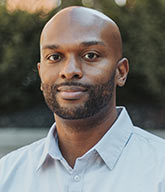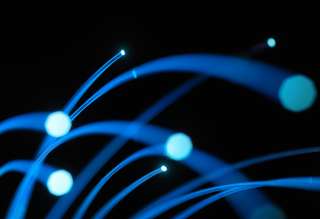- Our Story
- Publications & Resources
- Publications & Resources
- Publications
- IEEE Signal Processing Magazine
- IEEE Journal of Selected Topics in Signal Processing
- IEEE Signal Processing Letters
- IEEE Transactions on Computational Imaging
- IEEE Transactions on Image Processing
- IEEE Transactions on Information Forensics and Security
- IEEE Transactions on Multimedia
- IEEE Transactions on Signal and Information Processing over Networks
- IEEE Transactions on Signal Processing
- IEEE TCI
- IEEE TSIPN
- Data & Challenges
- Submit Manuscript
- Guidelines
- Information for Authors
- Special Issue Deadlines
- Overview Articles
- Top Accessed Articles
- SPS Newsletter
- SigPort
- SPS Resource Center
- Publications FAQ
- Blog
- News
- Dataset Papers
- Conferences & Events
- Community & Involvement
- Professional Development
- For Volunteers
- Information for Authors-OJSP
-
Home
Quadratic Transform for Fractional Programming in Signal Processing and Machine Learning: A unified approach for solving optimization problems involving ratios
Conferences Events IEEE Signal Processing Magazine IEEE SPL Article IEEE TIFS Article IEEE TMM Article IEEE TSP Article Jobs in Signal Processing Lectures Machine Learning Seasonal Schools Signal Processing News SPM Article SPS Distinguished Lectures SPS Newsletter Article SPS Webinar SPS Webinars SPS Webinar Series Webinar webinars -
Our Story
What is Signal Processing?

The technology we use, and even rely on, in our everyday lives –computers, radios, video, cell phones – is enabled by signal processing. Learn More » -
Publications & Resources
-
SPS Resources
- Signal Processing Magazine The premier publication of the society.
- SPS Newsletter Monthly updates in Signal Processing
- SPS Resource Center Online library of tutorials, lectures, and presentations.
- SigPort Online repository for reports, papers, and more.
- SPS Feed The latest news, events, and more from the world of Signal Processing.
-
SPS Resources
-
Conferences & Events
-
Community & Involvement
-
Membership
- Join SPS The IEEE Signal Processing Magazine, Conference, Discounts, Awards, Collaborations, and more!
- Chapter Locator Find your local chapter and connect with fellow industry professionals, academics and students
- Women in Signal Processing Networking and engagement opportunities for women across signal processing disciplines
- Students Scholarships, conference discounts, travel grants, SP Cup, VIP Cup, 5-MICC
- Young Professionals Career development opportunities, networking
- Get Involved
-
Technical Committees
- Applied Signal Processing Systems
- Audio and Acoustic Signal Processing
- Bio Imaging and Signal Processing
- Computational Imaging
- Image Video and Multidimensional Signal Processing
- Information Forensics and Security
- Machine Learning for Signal Processing
- Multimedia Signal Processing
- Sensor Array and Multichannel
- Signal Processing for Communication and Networking
- Signal Processing Theory and Methods
- Speech and Language Processing
- Technical Working Groups
- More TC Resources
-
Membership
-
Professional Development
-
Professional Development
- Signal Processing Mentorship Academy (SigMA) Program
- Micro Mentoring Experience Program (MiME)
- Distinguished Lecturer Program
- Distinguished Lecturers
- Distinguished Lecturer Nominations
- Past Lecturers
- Distinguished Industry Speaker Program
- Distinguished Industry Speakers
- Distinguished Industry Speaker Nominations
- Industry Resources
- IEEE Training Materials
- Jobs in Signal Processing: IEEE Job Site
-
Career Resources
- SPS Education Program Educational content in signal processing and related fields.
- Distinguished Lecturer Program Chapters have access to educators and authors in the fields of Signal Processing
- Job Opportunities Signal Processing and Technical Committee specific job opportunities
- Job Submission Form Employers may submit opportunities in the area of Signal Processing.
-
Professional Development
-
For Volunteers
-
For Board & Committee Members
- Board Agenda/Minutes* Agendas, minutes and supporting documentation for Board and Committee Members
- SPS Directory* Directory of volunteers, society and division directory for Board and Committee Members.
- Membership Development Reports* Insight into the Society’s month-over-month and year-over-year growths and declines for Board and Committee Members
-
For Board & Committee Members
Popular Pages
Today's:
- Information for Authors
- (ICME 2026) 2026 IEEE International Conference on Multimedia and Expo
- Submit a Proposal for ICASSP 2030
- IEEE Transactions on Information Forensics and Security
- Access Restricted
- Submit a Manuscript
- IEEE Transactions on Multimedia
- Conference Call for Papers
- Information for Authors-SPL
- IEEE Transactions on Signal Processing
- IEEE Transactions on Image Processing
- IEEE Journal of Selected Topics in Signal Processing
- IEEE Signal Processing Letters
- Unified EDICS
- (ASRU 2025) 2025 IEEE Automatic Speech Recognition and Understanding Workshop
All time:
- Information for Authors
- Submit a Manuscript
- IEEE Transactions on Image Processing
- IEEE Transactions on Information Forensics and Security
- IEEE Transactions on Multimedia
- IEEE Transactions on Audio, Speech and Language Processing
- IEEE Signal Processing Letters
- IEEE Transactions on Signal Processing
- Conferences & Events
- IEEE Journal of Selected Topics in Signal Processing
- Information for Authors-SPL
- Conference Call for Papers
- Signal Processing 101
- IEEE Signal Processing Magazine
- Guidelines
Last viewed:
- Access Restricted
- 2025 IEEE SPS Chapter Initiative: IRIS
- Editorial Board
- Publications & Resources
- IEEE Transactions on Multimedia
- Join a Technical Committee
- Seizure Detection Challenge: ICASSP 2023
- A Compressed Sensing Approach to Group-Testing for COVID-19 Detection
- Signal Processing Cup
- Affiliates
- Affiliates
- IEEE Transactions on Information Forensics and Security
- IEEE Signal Processing Magazine
- IEEE JSTSP Special Issue on High-Dimensional Imaging: Emerging Challenges and Advances in Reconstruction and Restoration
- Membership
Member Highlight: Dr. Donald S. Williamson, Associate Professor, Ohio State University
You are here
Newsletter Menu
Newsletter Categories
Top Reasons to Join SPS Today!
1. IEEE Signal Processing Magazine
2. Signal Processing Digital Library*
3. Inside Signal Processing Newsletter
4. SPS Resource Center
5. Career advancement & recognition
6. Discounts on conferences and publications
7. Professional networking
8. Communities for students, young professionals, and women
9. Volunteer opportunities
10. Coming soon! PDH/CEU credits
Click here to learn more.
News and Resources for Members of the IEEE Signal Processing Society
Member Highlight: Dr. Donald S. Williamson, Associate Professor, Ohio State University
Member Highlight: Dr. Donald S. Williamson
Associate Professor in the Department of Computer Science and Engineering
The Ohio State University, USA
 Dr. Donald S. Williamson is an Associate Professor in the Department of Computer Science and Engineering at The Ohio State University, where he is also an affiliate member of the Translational Data Analytics Institute (TDAI) and the Center for Cognitive and Brain Sciences. He received his Ph.D. in computer science and engineering from The Ohio State University, a M.S. in electrical engineering from Drexel University and his B.E.E. from the University of Delaware. Prior to earning his Ph.D., he was a Member of the Engineering Staff at Lockheed Martin, where he worked in the general area of radar signal processing. He previously was an Assistant Professor and briefly an Associate Professor in the Department of Computer Science at Indiana University.
Dr. Donald S. Williamson is an Associate Professor in the Department of Computer Science and Engineering at The Ohio State University, where he is also an affiliate member of the Translational Data Analytics Institute (TDAI) and the Center for Cognitive and Brain Sciences. He received his Ph.D. in computer science and engineering from The Ohio State University, a M.S. in electrical engineering from Drexel University and his B.E.E. from the University of Delaware. Prior to earning his Ph.D., he was a Member of the Engineering Staff at Lockheed Martin, where he worked in the general area of radar signal processing. He previously was an Assistant Professor and briefly an Associate Professor in the Department of Computer Science at Indiana University.
He is the director of The Audio, Speech and Perceptually-Inspired Research (ASPIRE) group. The groups overarching goal is to develop intelligent sound-processing algorithms that continually learn from user and environmental data in real-world environments, while also preserving user privacy. The groups work has been externally supported by the National Science Foundation (NSF), Department of Defense, and the Toyota Research Institute (TRI), to name a few. Dr. Williamson is the recipient of two NSF awards, including an NSF CRII and NSF CAREER award.
Dr. Williamson and The ASPIRE Group conduct interdisciplinary research in the areas of machine (deep) learning, signal processing, psychoacoustics and hearing science. More specifically, they collectively work on projects in the areas listed below:
- noise removal and reduction for speech data
- data-driven perceptual speech assessment
- auditory attention detection
- audio privacy
We approached Dr. Williamson to learn more:
Why did you choose to become a faculty in the field of signal processing?
It started because I had an interest in the areas where signal processing could be applied. Areas such as, digital communication and consumer electronics. When I was an undergraduate student, I really enjoyed the mathematics and design aspects of signal processing. This combined with my interest in music, speech and audio signals resulting in my decision to pursue this area of research as a graduate student. Now, as an associate professor, I see how this field impacts other areas of research and people in general, and I want to be someone that contributes to that impact.
How does your work affect society?
The name of my research group is The Audio, Speech and Perceptually-Inspired REsearch group (ASPIRE). I chose this name because I wanted it to have multiple meanings. One pertaining to my research, I want my work to be perceptually inspired and consider the impact it has on people. A big part of my research is developing intelligent approaches that effectively remove unwanted sounds from audio signals that contain speech. These sounds can include signals from other competing speakers or unwanted construction noise for example. This area of work has the potential to positively affect the millions of individuals that could wear hearing aids, as this technology can be used in their devices to enable them to better communicate in noisy environments. Furthermore, my research strives to develop perceptually inspired approaches that also incorporate human interaction. I genuinely believe that if we want signal processing and machine learning to have a huge impact, we must incorporate people in the process.
I also chose the name of my group because I want the next generation of young people to aspire to pursue careers in science and engineering. I believe that it is also the responsibility of academics to not just impact society through our technology and research, but to impact people through our interactions and relationships. I’ve done this by being involved in many efforts to help shape young grade school students, undergraduates, and graduate students, especially those from underrepresented groups.
What challenges have you had to face to get to where you are today?
I think that there are always professional and personal challenges that everyone faces. Professionally, one of the challenges is developing a proper understanding of the interdisciplinary fields that encompass my work, fields such as signal processing, machine learning, psychoacoustics, and behavioral studies. Success in my area of work requires a deep understanding in each of these fields, and it is challenging to develop this. Thankfully, I’ve had great advisors, mentors, family, and friends that have helped along the way. Additionally, it is difficult to stay knowledgeable about all the new advances in each of these fields, while staying focused on your immediate and long-term goals. So, a challenge really is about being able to stay focused on your work, even though other areas may be important.
What advice would you give to scientists/engineers in signal processing?
For emerging scientists and engineers that have just started to be exposed to the field, I would encourage them to obtain as many experiences as possible. These experiences will help increase their depth and breadth of knowledge, but it will also help them find their niche and area that they want to pursue. I would also encourage them not to get to down about negative experiences, as they can learn from them, and they can help propel them forward. For scientists and engineers that have already established their area of focus, I would suggest that they also consider the big picture with the problem that they are addressing. The solutions that we develop in signal processing impact people and society in many ways, and we need to consider how our solutions can impact them positively and negatively. We are at the time where we can no longer have tunnel vision about our work, and we must consider interdisciplinary aspects of our research and use them to guide our solutions.
Is there anything else you would like to add?
It truly is a great time to work in the general area of signal processing. The technology that is being developed in this area is truly having a profound impact in many ways. Every day we witness how this field impacts many people, including the developers of the technology, the users of the technology, and those that write about it and analyze the solutions. I’m excited about all that will be developed going forward, and how the field continues to grow and expand. Furthermore, I look forward to observing and contributing to this expansion and to the education of a diverse group of people that cultivate new ideas.
Open Calls
| Nomination/Position | Deadline |
|---|---|
| Call for Nominations for the SPS Chapter of the Year Award | 15 October 2025 |
| Call for Papers for 2026 LRAC Workshop | 22 October 2025 |
| Submit Your 2026 ICASSP Workshop Paper | 22 October 2025 |
| Submit a Proposal for ICASSP 2030 | 31 October 2025 |
| Call for Project Proposals: IEEE SPS SigMA Program - Signal Processing Mentorship Academy | 2 November 2025 |
| Submit Your Proposals for 2026 Member-Driven Initiatives | 21 November 2025 |
| IEEE Signal Processing Society Annual Election Opens on 17 October | 4 December 2025 |
Society News
Education & Resources
Member Highlights
Technical Committee News
SPS Social Media
- IEEE SPS Facebook Page https://www.facebook.com/ieeeSPS
- IEEE SPS X Page https://x.com/IEEEsps
- IEEE SPS Instagram Page https://www.instagram.com/ieeesps/?hl=en
- IEEE SPS LinkedIn Page https://www.linkedin.com/company/ieeesps/
- IEEE SPS YouTube Channel https://www.youtube.com/ieeeSPS
Home | Sitemap | Contact | Accessibility | Nondiscrimination Policy | IEEE Ethics Reporting | IEEE Privacy Policy | Terms | Feedback
© Copyright 2025 IEEE - All rights reserved. Use of this website signifies your agreement to the IEEE Terms and Conditions.
A public charity, IEEE is the world's largest technical professional organization dedicated to advancing technology for the benefit of humanity.








